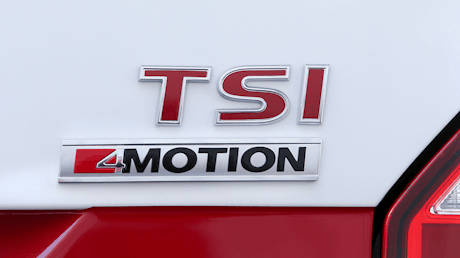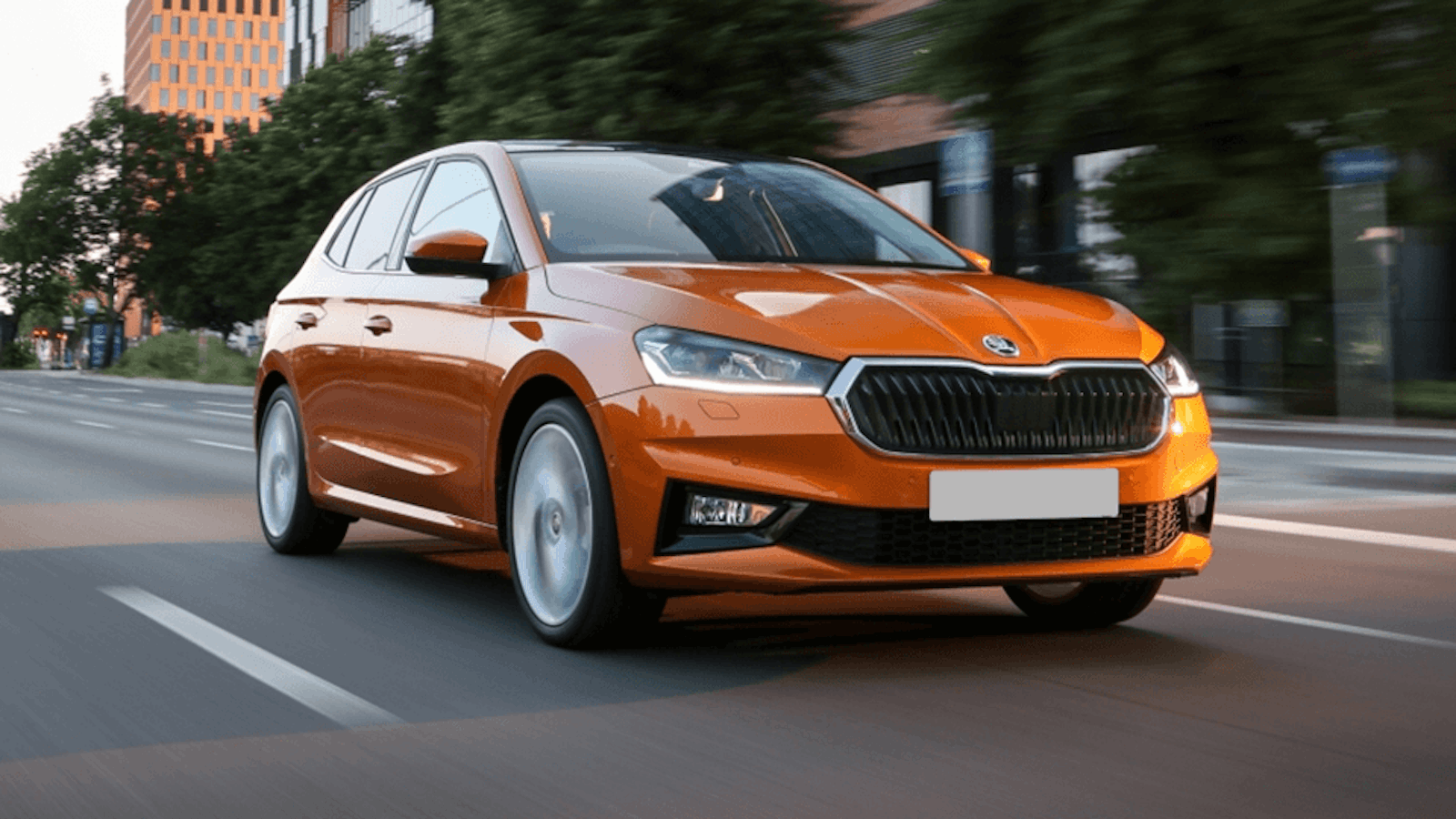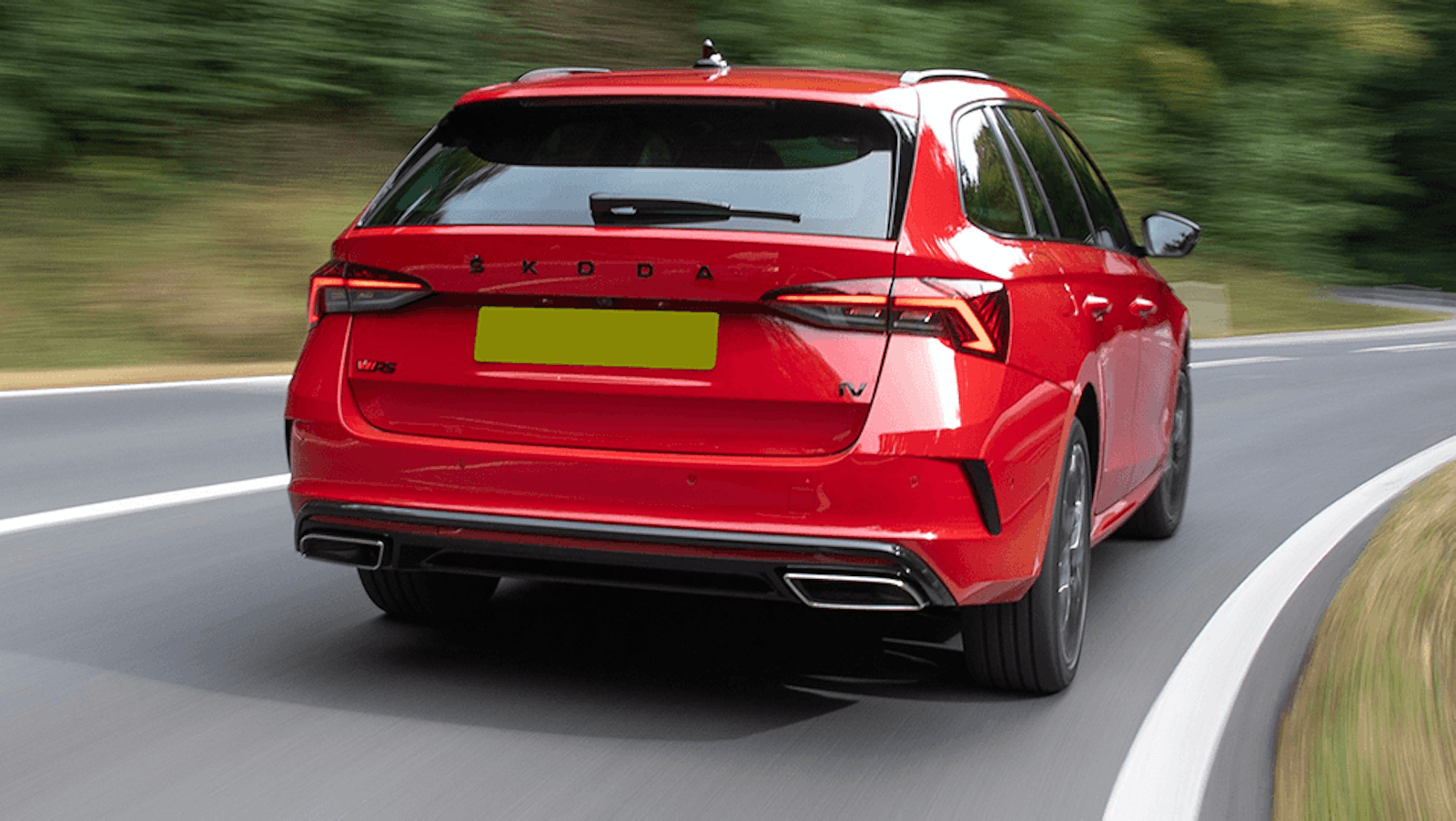What does TSI stand for on a car?
December 29, 2021 by Ryan Hirons

You’ve likely seen TSI on the back a few cars before, but what does TSI stand for?
This guide is here to explain all, and to help you decide if TSI power is in your future.
What is a TSI engine?
A TSI engine is a type of petrol engine produced by Volkswagen.
It stands for Turbocharged Stratified Injection, and in basic terms refers to the engine being turbocharged.
It’s an evolution of Volkswagen’s TFSI (Turbocharged Fuel Stratified Injection). Though similar, the improvements made to new TSI engines generally have increased reliability and low-end torque.
Which cars have a TSI engine?

You’ll find TSI engines across a multitude of Volkswagen Group cars. These include ones sold under the Volkswagen brand, as well as SEAT and Skoda.
Cars like the Volkswagen Golf, Skoda Fabia and SEAT Leon use TSI engines at the core of their lineups.
What types of TSI engines are available?

As well as being offered in pure petrol guise, TSI engines are also used in various Volkswagen Group plug-in hybrid cars.
For the former, you’ve got a range of 1.0-, 1.5- and even 2.0-litre TSI options.
1.0-litre engines are reserved for smaller cars, including the Volkswagen Polo and Seat Ibiza.

The 1.5-litre engine can be found across a variety of cars, right from the Skoda Octavia up to the Kodiaq and everything in between.
2.0-litre engines are typically reserved for SUVs like the SEAT Tarraco, as well as hot hatches like the Volkswagen Golf R.
The largest of all TSI engines on offer is a 3.0-litre V6. This is used exclusively in the Volkswagen Touareg.

Plug-in hybrid setups from Volkswagen, Skoda and SEAT typically use a 1.4-litre TSI petrol engine paired with a small electric motor.
What’s the difference between a TSI and TDI engine?
A TSI engine is petrol, whereas a TDI engine is a diesel. TDI stands for Turbocharged Direct Injection, again signifying it’s a turbodiesel unit.
TDI engines will typically have better fuel economy compared to a TSI (especially if you do lots of long motorway journeys), as is usually the case with any diesel engine compared to petrol. TDIs tend to be more expensive to purchase though, and the fuel itself typically costs more per litre.
Whichever suits you best depends on your driving habits. If you cover lots of miles a year, especially on the motorway, a TDI will more likely be suited.
In contrast, if you spend a lot of time in urban areas or don’t drive all too much, a TSI may be the way to go.
Cars Change? Carwow!
Looking for a new set of wheels? With Carwow you can sell your car quickly and for a fair price – as well as find great offers on your next one. Whether you’re looking to buy a car brand new, are after something used or you want to explore car leasing options, Carwow is your one stop shop for new car deals.















